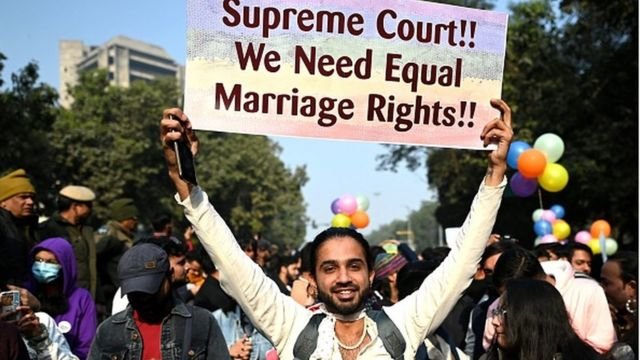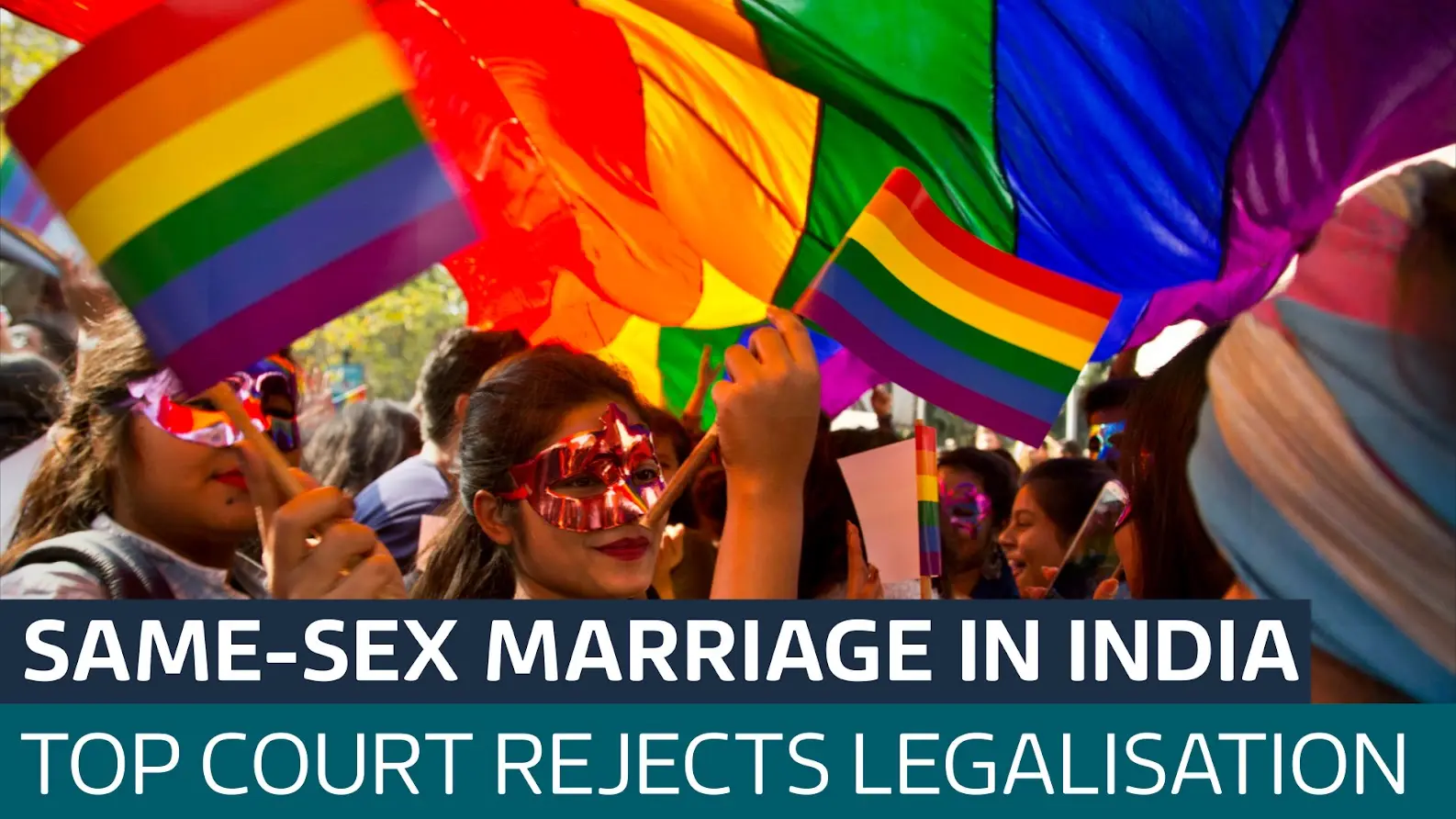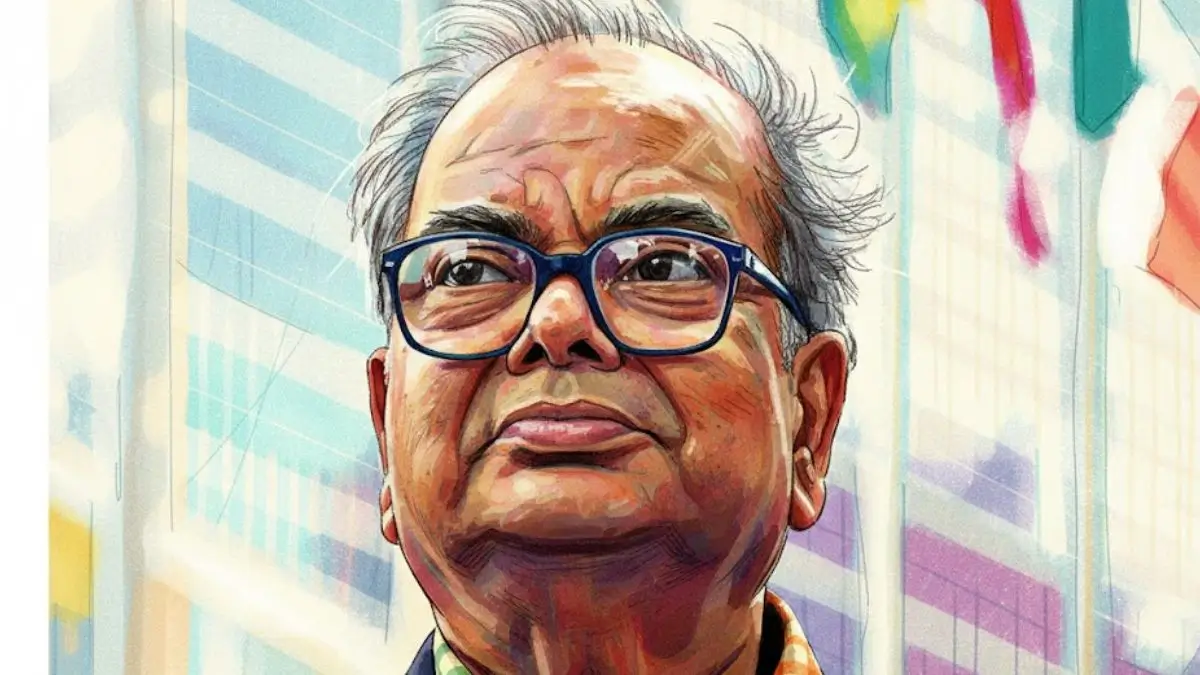Supreme Court Dismisses Appeal to Legalize Same-Sex Marriage
In a landmark decision, the Supreme Court of India has recently dismissed an appeal seeking the legalization of same-sex marriage in the country. This ruling has far-reaching implications and has generated significant public discourse. Let’s delve into the details of this development.

Why this News is Important
Changing Societal Norms: The Supreme Court’s dismissal of the appeal is crucial as it reflects the current societal norms and legal stance on LGBTQ+ rights in India. Understanding this context is essential for government exam aspirants, especially for positions in civil services, as it is a relevant topic in contemporary Indian society.
Human Rights and Equality: This news underscores the broader issue of human rights and equality. It highlights the ongoing struggle for LGBTQ+ rights and the need for reform in Indian laws and policies to align with international standards.
Historical Context
The legal battle for LGBTQ+ rights in India has a long history. It gained prominence in 2018 when the Supreme Court decriminalized homosexuality by striking down Section 377 of the Indian Penal Code, which criminalized consensual same-sex relationships. While this was a significant victory, it did not address the issue of same-sex marriage. This recent dismissal of the appeal reflects the continuing debate on LGBTQ+ rights and same-sex marriage in India.
Key Takeaways from “Supreme Court Dismisses Appeal to Legalize Same-Sex Marriage”
| Serial Number | Key Takeaway |
|---|---|
| 1. | The Supreme Court dismissed an appeal seeking the legalization of same-sex marriage in India. |
| 2. | This decision highlights the ongoing debate over LGBTQ+ rights and equality in the country. |
| 3. | Understanding this development is essential for government exam aspirants, as it relates to changing societal norms and human rights. |
| 4. | It has historical context in the decriminalization of homosexuality in India in 2018 through the striking down of Section 377. |
| 5. | The news has implications for various careers, including teaching, law enforcement, and civil services, as it reflects the need for inclusivity and recognition of diverse perspectives. |
Important FAQs for Students from this News
Q: Is same-sex marriage legal in India after this Supreme Court decision?
A: No, the Supreme Court has dismissed an appeal seeking the legalization of same-sex marriage. Same-sex marriage remains illegal in India.
Q: How does this decision relate to LGBTQ+ rights?
A: This decision is a significant part of the ongoing struggle for LGBTQ+ rights in India. While homosexuality was decriminalized in 2018, the issue of same-sex marriage is still being debated.
Q: Why is this news important for government exam aspirants?
A: Understanding this news is vital for government exam aspirants because it relates to changing societal norms, human rights, and legal developments that are relevant to various career fields.
Q: What was the historical context of this decision?
A: The historical context includes the decriminalization of homosexuality in India in 2018 when Section 377 was struck down by the Supreme Court.
Q: How does this decision impact different professions, such as teaching and law enforcement?
A: This decision highlights the need for inclusivity and recognition of diverse perspectives, making it relevant to various professions that deal with social issues and human rights.
Some Important Current Affairs Links

















